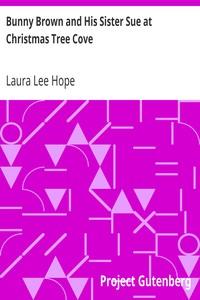|
|
Read this ebook for free! No credit card needed, absolutely nothing to pay.Words: 9926 in 3 pages
This is an ebook sharing website. You can read the uploaded ebooks for free here. No credit cards needed, nothing to pay. If you want to own a digital copy of the ebook, or want to read offline with your favorite ebook-reader, then you can choose to buy and download the ebook.

: The Angel of Death by Wallin Johan Olof Almqvist August W Translator - Poetry@FreeBooksTue 06 Jun, 2023 No Alienated Man 1 Grizzlebeard: History From Within 49 The Future Place of Hilaire Belloc in English Letters 101 List of Editions Cited 106 NO ALIENATED MAN The ancient Arabs spoke of a creature having life in two worlds: his body was rooted in the earth, but his soul swept out across the horizons to a world beyond. Let us call him by his name: Man. This balance which is Man is a tension rarely maintained in the course of human existence. Let us call the one who situates his destiny in this world, and who habituates his gaze to the things this side of the horizon, Aristotelian Man. Let us call the one who despises the limits of the horizons, and who contemplates the world beyond, Platonic Man. Rimbaud was to wreak his vengeance on this Other he could not find by denouncing poetry, and by turning to what consolations the sands of Africa and the keel of a slave ship could offer an alienated man. He was a forerunner of what has become the dominant motif of the Western soul as expressed in its literature: the Man of Guilt. Guilt is the effect of estrangement; it follows on a renunciation, explicit or implicit, of some dimension of the human spirit which is essential to the integral perfection of man. This renunciation has nothing to do with asceticism, which is a discipline sanctified and defined by the Christian tradition, having as its goal the flowering of human existence. The ascetic is an artist who prunes away the irrelevant so that the end may be achieved. Alienation is altogether different. It is the renunciation of something without which the end cannot be. Hence, wherever you find this sense of guilt so preoccupying modern man, you find a rupturing of the human heart, a positive surrender of some value which is consubstantial with achieved, completed, personal perfection. Being cannot be mocked with impunity. A whole body of literature has grown up within the last seventy-five years devoted to exploring and understanding the estrangement of contemporary civilized man. That this body of art, chiefly found in the novel, should deal with the expatriate seems extremely significant of the crisis facing man today. One need only recall the world of Henry James to find an apt symbol for the modern dilemma. This New Englander left his American home to find himself in a Europe that existed chiefly in his imagination. Some of his best work is an attempt at penetrating into the restlessness and homelessness of the Western soul. James is full of trans-Atlantic crossings. His short story "Four Meetings" brings out the paradox of alienation. It concerns a young New England school teacher who yearns for the day when she can see the Europe of her dreams. She succeeds after years of work and saving, but is tricked, when her boat docks in the Port of Le Havre, into turning over her money to a young man who claims to be a distant cousin. She returns to New England by the next ship. James ends the story on a note of delicate savagery: the wife of the cousin, a bogus countess from the streets of Paris, comes to America to live with and off the young school teacher, now disillusioned, alienated, but desperately maintaining the situation out of a sense of decency, and out of the need to hang onto the frame of an illusion, rather than face the irony of the complete nothingness of her existence. The irony is deepened in that this aging school mistress of Boston Puritan antecedents symbolizes James himself in his relationship to the older culture that he sought to know, and yet never penetrated to its depths. James remained an alienated man. All of this suggests the true story, so heavy with possibilities, that G. K. Chesterton recounted about James. Chesterton had taken a summer house in Rye, and James, "after exactly the correct interval," made a formal call, accompanied by his brother William. Everyone talked politely of one thing and another, mostly letters, until a roar went up from the garden; two bearded, unkempt tramps burst in on the delicately poised teacups, and sang out boldly for beer and bacon. It was the introduction of Henry James to Hilaire Belloc, and to the reality of that European tradition that ever remained a stranger to the New Englander. Chesterton suggests that the profound significance of this encounter eluded Mr. James, whose subtle mind seemed incapable of coping with anything beyond the shadow of a reality. Belloc bulked too big for him. Free books android app tbrJar TBR JAR Read Free books online gutenberg More posts by @FreeBooks
: Bunny Brown and His Sister Sue at Christmas Tree Cove by Hope Laura Lee - Siblings Juvenile fiction; Brown Bunny (Fictitious character) Juvenile fiction Children's Book Series@FreeBooksTue 06 Jun, 2023

: Bunny Brown and His Sister Sue at Aunt Lu's City Home by Hope Laura Lee Nosworthy Florence England Illustrator - Siblings Juvenile fiction; New York (N.Y.) Juvenile fiction; Aunts Juvenile fiction; Brown Bunny (Fictitious character) Juvenile fiction Childr@FreeBooksTue 06 Jun, 2023
|
Terms of Use Stock Market News! © gutenberg.org.in2025 All Rights reserved.






